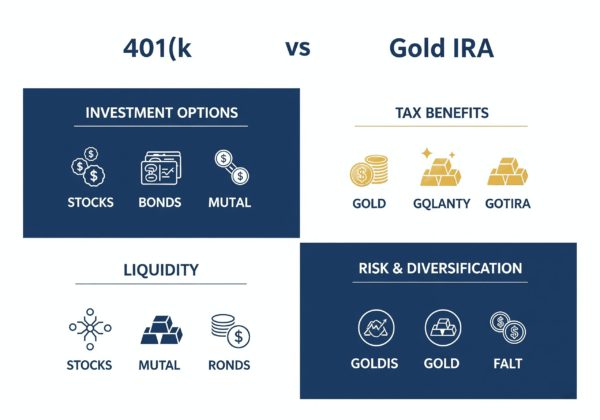Earning over $100,000 as a U.S. entrepreneur is an exciting milestone. It means your business is thriving, your impact is growing, and your income is in a bracket that opens up more opportunities. But it also means your tax obligations are more complex. Without the right tax strategies in place, a significant chunk of your income could go toward taxes, reducing your overall profitability and limiting your ability to reinvest in your business.
That’s where tax optimization strategies come into play. When you understand the tax system and implement legal, proactive methods to lower your tax liability, you can save tens of thousands of dollars each year. These savings can go toward expanding your team, upgrading technology, investing in marketing, or building your retirement portfolio. This guide breaks down the best tax strategies for U.S. entrepreneurs earning over $100K. Whether you are a solo consultant, online business owner, real estate investor, or startup founder, these insights will help you build long-term wealth and maximize your after tax income.
Separate Your Personal and Business Finances
One of the most foundational tax strategies for U.S. entrepreneurs is separating your personal and business finances. While it might seem convenient to use a single bank account or credit card for everything especially when you’re just starting it can quickly become a logistical and legal nightmare, particularly once your income crosses six figures.
When personal and business transactions are mixed, tracking deductible expenses becomes difficult. This not only increases the risk of missing out on valuable deductions but also raises red flags with the IRS during audits. A clear line between business and personal finances shows professionalism, improves credibility with banks and investors, and makes tax season far less stressful.
Here’s why separation matters and how to do it effectively:
1. Clear Audit Trail
By using a dedicated US business account, you create a clean paper trail. If the IRS ever questions your tax filings, you’ll have organized, easily accessible records of your business income and expenses. This minimizes audit risk and speeds up verification processes.
2. Unlock More Tax Deductions
When your expenses are neatly categorized in a business only checking account or credit card, it’s easier to identify and claim legitimate tax write offs like office supplies, travel, advertising, and professional services. This can significantly reduce your taxable income and overall tax bill.
3. Streamlined Bookkeeping
Having separate accounts means your accountant or bookkeeper doesn’t have to spend hours untangling personal transactions from business ones. This saves you money on accounting fees and ensures your financial reports are accurate and compliant.
4. Professionalism and Growth Readiness
Banks, investors, and partners are more likely to take you seriously when you maintain professional financial boundaries. If you ever apply for a business loan, grant, or investment, showing organized business-only financial statements from your US business account builds trust and credibility.
5. Legal Protection
If your business is a separate legal entity (like an LLC or corporation), mingling personal and business funds can lead to “piercing the corporate veil” a legal term that means your personal assets might be exposed to business liabilities. Keeping finances separate strengthens your legal protection and preserves your limited liability status.
6. Better Cash Flow Management
Tracking your company’s income and expenses through a dedicated business account helps you understand your cash flow in real time. You’ll know exactly what’s coming in and going out, which is essential for budgeting, planning taxes, and making smart investment decisions.
Pro Tip: Open a high yield US business checking account to earn interest on idle cash while keeping your finances clean. Many modern banks offer low-fee or no-fee options tailored for entrepreneurs and small business owners.
Choose the Right Business Structure
One of the smartest decisions high-income entrepreneurs can make is selecting the right business structure. This isn’t just a legal formality—it directly affects how much tax you’ll owe. Sole proprietorships, LLCs, S corporations, and C corporations all come with different tax rules, levels of liability, and reporting requirements.
For example, forming an S corporation may allow you to split your income between salary and distributions, potentially lowering your self-employment tax. On the other hand, an LLC provides flexibility and can be taxed as an S corp or even a partnership. Choosing the wrong structure could mean paying thousands more in taxes every year.
Before setting up or changing your business structure, consult a tax advisor or accountant who understands how to align it with your financial goals. This foundational choice plays a big role in your overall tax optimization strategy.
Maximize Business Expense Deductions
Every dollar you spend to operate and grow your business may be a potential tax deduction. Entrepreneurs earning over $100K should make it a priority to track every deductible business expense throughout the year. These can include office supplies, software subscriptions, advertising costs, internet and phone bills, legal fees, and even a portion of your home office.
To qualify, expenses must be “ordinary and necessary” for your line of work. Proper recordkeeping is key—use a dedicated US business account and business credit card to separate your purchases and maintain clear documentation.
Maximizing deductions isn’t about tricking the IRS it’s about making sure you keep more of what you earn by leveraging every legal benefit available to business owners.
Set Up a Retirement Plan
If you’re self-employed and earning six figures, setting up a retirement plan is one of the most powerful tax-saving moves you can make. Retirement contributions reduce your taxable income now while helping you build long-term wealth.
Options include:
- SEP IRA: Contribute up to 25% of compensation (up to $69,000 in 2024).
- Solo 401(k): Includes both employer and employee contributions ideal for high earners.
- Defined Benefit Plan: For those who want to contribute well over $100K per year.
Not only do these plans lower your current year tax bill, but they also position you to retire comfortably without relying solely on Social Security or after tax investments.

Hire Your Family Members
Hiring your spouse or children to work in your business can be a legitimate way to reduce taxable income as long as they’re doing real work and being paid fairly.
For example, if your child helps with packaging, bookkeeping, or marketing, you can pay them a reasonable wage and deduct that salary as a business expense. In 2024, children under 18 working for a sole proprietorship may be exempt from Social Security and Medicare taxes, and they can earn up to $14,600 tax-free due to the standard deduction.
This strategy not only keeps money in the family, but it also teaches valuable work and financial skills all while optimizing your tax liability.
Use the Qualified Business Income Deduction
Thanks to the 2017 Tax Cuts and Jobs Act, many small business owners can deduct up to 20% of their qualified business income (QBI) from their taxes. This benefit, known as the QBI deduction, is available to pass-through entities like sole proprietorships, partnerships, S corps, and some LLCs.
However, it comes with income limits and rules especially for “specified service businesses” like consultants, lawyers, or financial advisors. In 2024, the full deduction starts to phase out for individuals earning over $182,100 (or $364,200 for joint filers).
If you qualify, this deduction can reduce your taxable income significantly, especially for high-income entrepreneurs. A tax advisor can help you structure your income to maximize this valuable benefit.
Consider Accelerated Depreciation
When you purchase expensive assets like equipment, software, or vehicles for your business, you don’t always have to deduct them slowly over years. Instead, the IRS allows accelerated depreciation through:
- Bonus Depreciation: 60% for qualified property in 2024.
- Section 179 Deduction: Deduct up to $1.22 million for equipment purchases.
These options let you write off major purchases immediately, reducing your taxable income in the year of purchase. This is especially valuable for entrepreneurs making over $100K and needing to offset income with large expenses.
Strategically timing big purchases can help you lower your tax bill significantly while continuing to invest in your business’s growth.
Reinvest Profits into the Business
Instead of taking all your profits as income (which is taxable), consider reinvesting a portion of your earnings back into the business. This might include upgrading equipment, launching a new product, expanding your team, or boosting your marketing budget.
These reinvestments are not only smart for growth they’re also tax deductible, meaning they reduce your business’s taxable profit. It’s a double win: you fuel your business while reducing your tax burden.
Just make sure to document each expense properly and make purchases that align with your long-term goals. It’s a proven way to scale your business while remaining tax efficient.
Track and Deduct Mileage and Travel
If you use your personal vehicle for business-related activities, you can deduct mileage or actual vehicle expenses. In 2024, the IRS standard mileage rate is 67 cents per mile for business use.
Track every trip using an app or detailed log, noting the date, destination, and business purpose. Additionally, travel costs such as airfare, hotels, and meals related to client meetings, conferences, or vendor visits are deductible as long as they are business related.
Accurate tracking ensures you don’t leave money on the table. Travel is one of the most overlooked areas where high-earning entrepreneurs can rack up significant tax deductions.
Work with a Tax Advisor Year Round
A major mistake many entrepreneurs make is only talking to their accountant once a year during tax season. If you’re making over $100K, tax planning should be a year-round activity, not a once-a-year scramble.
A qualified tax advisor can help you track changes in tax laws, take advantage of opportunities in real time, and plan your income and expenses strategically. They’ll help you adjust your estimated taxes, avoid surprises, and find legal ways to reduce your tax liability.
Remember, proactive tax planning isn’t an expense it’s an investment that pays for itself many times over.
Final Thoughts: Tax Optimization Is a Year Round Mindset
As an entrepreneur making over $100K, you’ve already proven that you can grow a successful business. But building wealth and keeping more of what you earn requires a smarter approach tax optimization. This isn’t just about finding deductions in April; it’s about making strategic decisions throughout the year that align with your financial goals and reduce your long-term tax liability.
By separating your finances, choosing the right structure, investing in retirement, and leveraging tools like accelerated depreciation or the QBI deduction, you’re not only lowering your tax bill you’re positioning your business for sustainable growth.
The key is consistency. Work with a trusted tax advisor, track your finances diligently, and stay proactive rather than reactive. When you treat tax optimization as an ongoing business strategy not just an end of year chore you create a strong foundation for wealth, security, and long term success.
Start now—your future self (and your bank account) will thank you.




